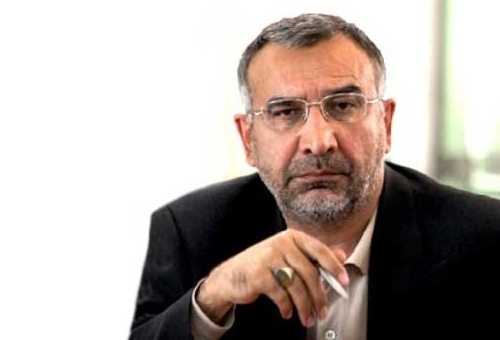 TEHRAN (FNA)- The Afghan and Pakistani extremist and terrorist groups have close and extensive contacts with the drug cartels active in the region, a former Iranian diplomat said on Tuesday, a few days after a terrorist group crossed the border and killed 14 Iranian border guards and escaped back into Pakistan.
TEHRAN (FNA)- The Afghan and Pakistani extremist and terrorist groups have close and extensive contacts with the drug cartels active in the region, a former Iranian diplomat said on Tuesday, a few days after a terrorist group crossed the border and killed 14 Iranian border guards and escaped back into Pakistan.�The Takfiri terrorist groups active in the region cannot be separated from those groups which traffic drugs from Afghanistan and Pakistan to other regions as they provide mutual services to each other,� former Iranian Ambassador to Kabul�Mohammad Ebrahim Taherian�told FNA today.
He referred to the Saturday terrorist attack at Iran's Southeastern borders with Pakistan, and said terrorist groups, in full cooperation with drug cartels, are operating along �2,000km of our country�s border regions", doing their best to stir insecurity in such areas.
Stressing that extremist groups use all tools and means to create insecurity in the region, Taherian said they are supported by certain Arab and western states and the current dire conditions in the region is the result of their support and aids to these groups.
In relevant remarks on Sunday night, Iranian Foreign Minister Mohammad Javad Zarif lambasted the terrorist attack in Southeastern Iran, and warned of the rapid spread of extremism in the region.
�This point should be receive attention that the painful incident in Saravan (in Sistan and Baouchestan province, Southeastern Iran) was an instance of the results of the spread of extremism in the region,� Zarif wrote on his Facebook page.
�Extremism and terrorism know no borders and in today's world security is an integrated phenomenon and therefore we should help to the establishment of security in the region to maintain security of our own country,� he added.
Zarif referred to the recent terrorist attack in Southeastern Iran, and said he will discuss the issue with his Pakistani counterpart on the phone because the terrorists have fled to Pakistan due to the lax security measures in the neighboring country.
14 Iranian border guards were killed and 6 more were injured during the terrorist attack in Saravan border region in Southeastern Iran in the early hours of Saturday morning. The terrorists who have reportedly been members of the outlawed Jeish Al-Adl radical Sunni Wahhabi movement affiliated to the terrorist Jundollah group fled into Pakistan after the operation in Iran's Southeastern Sistan and Balouchestan province.
There has yet been no information about any casualty on the side of the outlaws.
The Jundollah group has built a safe haven in Pakistan and it escaped to this Eastern neighbor of the Islamic Republic each time it staged a terrorist operation in Iran before it was disbanded and its leaders were arrested and executed.
In one of its last operations in Iran, the Pakistani-based Jundollah terrorist group claimed responsibility for December 15, 2010 attack at the Imam Hussein Mosque in Iran's Southeastern port city of Chabahar in Sistan and Balouchestan Province where people were commemorating the martyrdom of Imam Hussein (PBUH), the third Shiite Imam.
At least 38 mourners were killed and more than 89 others, including women and children, were injured in the attack.
The Jundollah group has claimed responsibility for numerous terrorist attacks in Iran. The group has carried out mass murder, armed robbery, kidnapping, acts of sabotage and bombings. They have targeted civilians and government officials as well as all ranks of Iran's military.
In one of the worst cases, the terrorist group killed 22 citizens and abducted 7 more in the Tasouki region on a road linking the southeastern city of Zahedan to another provincial town.
In 2007, Jundollah kidnapped 30 people in the Sistan and Balouchestan province and took them to the neighboring Pakistan.
Jundollah claimed responsibility the same year for an attack on an Islamic Revolution Guards Corps (IRGC) bus in which 11 IRGC personnel were killed.
In another crime in October 2009, the Pakistan-based terrorist Jundollah group claimed responsibility for a deadly attack in the Sistan and Balouchestan province which killed 42 people among them a group of senior military commanders, including Lieutenant Commander of the IRGC Ground Force Brigadier General Nourali Shoushtari.
By Fars News Agency
The Iran Project is not responsible for the content of quoted articles.











